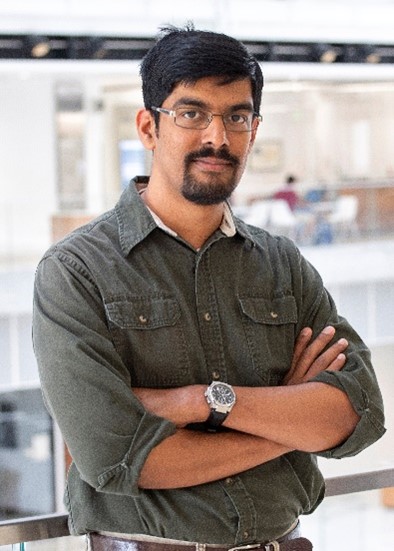
- This event has passed.
ESE Fall Seminar – “Josephson parametric amplifiers for rapid, high-fidelity measurement of solid-state qubits”
September 12, 2023 at 11:00 AM - 12:00 PM
Quantum physics puts a limit on how small the noise added by an amplifier can be. Limiting this extra noise, which causes unavoidable signal degradation, is an essential requirement for the measurement of weak electromagnetic signals in various areas of science and engineering. In particular, a nearly-quantum-limited microwave amplifier is a key tool for performing rapid, high-fidelity measurement of solid-state qubits. In this talk, I will review how we build Josephson parametric amplifiers (JPAs) that adds only the minimum amount of noise required by quantum physics. Focusing on a specific JPA circuit called the SNAIL parametric amplifier, I will discuss how, we have improved the performance of these amplifiers to achieve greater power handling and information throughput, necessary for realizing large-scale quantum information processors. Finally, I will discuss recent work to realize JPAs with a new element, a Josephson Junction Field Effect Transistor (JJFET) made from InAs-Al superconductor-semiconductor heterostructures.

Shyam Shankar
Assistant Professor of Electrical and Computer Engineering, UT Austin
Shyam Shankar received his B. Tech in Electrical Engineering from Indian Institute of Technology, Kanpur in 2004 and his Ph. D. in Electrical Engineering from Princeton University in 2010. From 2010 to 2019, he worked as a postdoc and subsequently as a research scientist at Yale University in the Applied Physics department. In this capacity, he led a line of experiments that demonstrated the underlying principles for the design of large-scale quantum computers. These experiments included a demonstration of the quantum back-action of dispersive readout, the stabilization of entanglement with measurement-based and autonomous feedback, as well as the generation of modular remote entanglement between two superconducting qubits. He has also been involved in the development of quantum-limited amplifiers and non-reciprocal devices. Since 2019, he has been leading a research group focused on these themes at the University of Texas at Austin.
